Welcome
I started this blog in 2013 to share my reflections on reading, writing and psychology, along with my journey to become a published novelist. I soon graduated to about twenty book reviews a month and a weekly 99-word story. Ten years later, I've transferred my writing / publication updates to my new website but will continue here with occasional reviews and flash fiction pieces, and maybe the odd personal post.
|
As the world goes crazy, I crave, in my reading, not escapism, but a reflection of the flawed complexity of human beings and the things we do to make life that bit harder. But I need to be in safe hands to do so. So thanks to Louise Doughty and Jane Rogers – both established British authors unafraid to tackle difficult subjects – for providing that in their latest novels. Although quite different in their focus, both involve the characters reviewing painful pasts and their own culpability in order that their next mistakes might be that bit smaller.
8 Comments
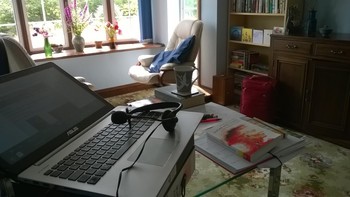 Although, like many writers, I find autumn to be the best time to tackle major writing projects, I’ve never yet been tempted to register for National Novel Writing Month. For me, the pace is too fast and the outcome too limited, but there’s nothing to stop me joining in informally, which is what I decided to try two years ago. Starting with three character sketches and a rough idea of the main plot points, I averaged a thousand words a day from the beginning of November onwards and surprised myself with a rough first draft of just under 80,000 words by the middle of January.
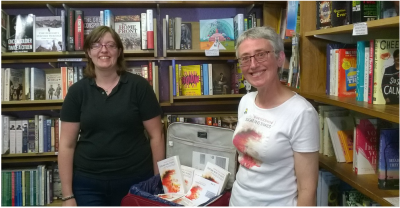 at Bakewell bookshop last month at Bakewell bookshop last month As I’ve been out and about talking about my novel, I’ve been surprised to meet – in stark contrast to the predominant aversion to spoilers – a couple of people who like to look at the ending, perhaps the last couple of paragraphs, before turning to the first page. Now, I like the ending of Sugar and Snails, although it’s been suggested that some might find the issues insufficiently resolved. (I do get asked if I’m planning to write a sequel!) Because it tells of a destination rather than the journey, I don’t think reading it in advance would constitute a spoiler (although, prattling on at one talk about how I was pleased with the ending, I did have a friend tell me afterwards she thought my ending wrapped things up too much).
 The coincidence of Charli Mills’s latest post on the loss of a secure base with the buzz about the bicentenary of Charlotte Brontë’s birth later this month (more on both later in this post) reminded me of this piece on fear as a motivator that has languished in my drafts folder for well over a year. I’m a great fan of Emma Darwin’s posts on writing because, while they’re stuffed with useful advice, she never pretends there’s a simple formula (or two or three or two hundred and three) to make our novels novel and our sentences sing. That’s not the case in some other corners of the creative writing industry. As I’ve mentioned before, I’m particularly hacked off by an implicit assumption that the classic quest underlies each and every story structure: we just have to decide what our hero wants and thwart him in his journey to find it. While I can see how that works for some fiction, lots of the novels I read and love don’t go down that route. On top of that, human motivation is a complex construct: some people genuinely don’t know what they want and some are far too passive to follow their dreams. Some are constrained by circumstances or demons from the past and some characters sabotage their own desires. With the echos of each other in the titles, I couldn’t resist pairing these two novels published this month, both involving parallel narratives. As I’m playing with a similar structure in my current WIP, I’m also interested in what these novels can teach us about a form that’s more difficult to pull off than we might think.
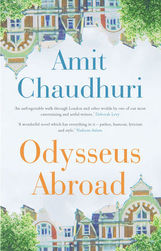 It’s August 1985, and Ananda, a student of English at the University of Central London with aspirations to be a poet, has a whole day to fill. We follow him reluctantly get out of bed, fret about the neighbours’ noise, miss his mother who has recently returned to Bombay, attend a meeting with his tutor, and hang out with his equally eccentric uncle, Rangamama, as they separately reminisce and bicker about their lives. Their territory is Bloomsbury, Hampstead and Belsize Park, a world of disappointing Indian restaurants, public transport, and potentially racist drunks. Inveterate outsiders, not just in London but in Asia, too: their Sylheti Hindu heritage having been twice rebranded (first with Partition, then with Bangladeshi independence) and leaving a legacy of “Indian” restaurants and the revered poet, Tagore. Desperately unhappy, the two men cling to each other despite their differences, Ananda possibly seeing his empty future in his uncle. It’s hard to know what to make of a novel comprised of all the minute quotidian detail that most novels would cut out. There are touches of humour, and I especially enjoyed this exposition on the lack of reference to lavatorial necessities in Western film and literature (p128-9):
While I’d recommend this novel to readers, I want to focus, as I did some time ago with Instructions for a Heatwave, on what we can learn from Laird Hunt’s sixth novel (although the first to be published in the UK) as writers, whether we are looking to write historical fiction or not.
 Keep at it! You’ll get there in the end if you try hard enough. How often did I come across such words as I struggled to find a publisher for my novel? And, now I’m published, am I going to regurgitate the mantra to others on the way up? No, I’m not, because – do you know what? – it’s bollocks. While writing a good book, and investing time and money to make it better, and treating each rejection as a trigger to try again, no doubt improve our chances, there’s no magic formula. Success doesn’t happen without an element of luck. They mean well, those published writers who perpetuate the mythology. After all, the great unpublished are hounding them for scraps of encouraging advice. Looking back on their own rocky road to publication, all they see is hard graft and talent. If that got them through, why wouldn’t others achieve the same result? But history is a story told from the point of view of the victors. The voices of those who worked equally hard without the golden ticket go unheard, save a few brave exceptions. Although his emphasis is marketing, Dan Blank proves himself an ally of the disaffected, picturing success as a function of writing talent, author platform and luck. 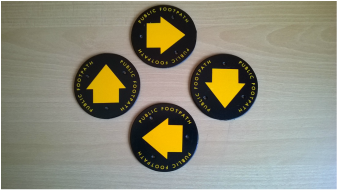 As some of my reviews will testify (e.g. My Real Children; Indigo; Hidden Knowledge), I can feel disorientated when a novel fails to unfold according to my expectations. But isn’t that often the case initially when we come to read fiction? Unless it’s ploddingly formulaic there’s an interval, before we settle into both story and style, when we don’t know where we are. Part of the pleasure of opening a new book is that sense that, despite the clues from title, cover and blurb, it could lead us somewhere new. But, as I’ve intimated time and again in my reviews, there needs to be balance between novelty and familiarity, and each of us have our own preferences for where we position ourselves between them. Completing the initial round of my publisher’s edits for my forthcoming novel, Sugar and Snails, I’m reminded of the potential for disorientation I’ve built into the story. My narrator, Diana, has a secret she is unable to share with the reader initially; when you get it, you might look back on what she’s previously told you in a new light. I have to hope I’ve hit a reasonable balance between surprise and security, but I know it won’t work for all.  I write to satisfy a difficult-to-pin-down need deep within my psyche, but writing is tough, and publication tougher and, at this stage of my life, I want to prioritise activities that bring me some satisfaction. Before I came out as a writer, I would scribble intermittently and intensively, emotionally-laden narratives that left me demoralised and deflated. About twelve years ago, I enrolled on an online short story course which enabled me to begin the arduous process of learning how to share and edit my words. Although I’m now in the joyful position of having one novel accepted for publication and another doing the rounds, somewhat less joyfully I have several unfinished novel projects and I can’t say I really know how one goes about the process of getting from idea to finished product. Winter being the best time for me to get some serious writing done, as the days grew shorter last year, I was excited when a new idea took shape in my mind. But I didn’t want to make the same mistake as the year before and end up losing interest at around 30,000 words. (I might write a post one day on deciding to abandon a project, although Emma Darwin has done this better than I ever could on her wonderful blog This Itch of Writing.) Hitherto suspicious of NaNoWriMo, I thought I’d make use of its slipstream to knuckle down to my project, albeit with a less ambitious target of an average of 1000 words a day. Have I achieved my goal? 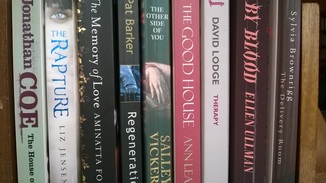 In the midst of my writing, when I’m floored by a factual question to which neither Google nor my encyclopaedic husband can furnish the answer, he tells me to make it up. After all, it’s fiction I’m creating not the instruction manual for launching a rocket to Mars. While close attention to detail lends our work credibility, we should also cut ourselves some slack. It would be unreasonable to expect us to get everything right. I’ve often wondered, as I’ve picked fault with my nine fictional psychologists and psychotherapists, if I’m being overly harsh. (I’ve wondered about that even more after reading a Catholic priest’s condemnation of John Boyne’s excellent A History of Loneliness in The Irish Times.) Surely it’s the story that matters above all else? While I’d defend the writer’s right to offend, many would prefer not to perpetuate unhelpful stereotypes. As M Kelter describes in his post Why Fictional Therapists Suck, inaccurate portrayals of psychotherapists in fiction can do real harm by putting people off accessing the help they need. So how do you create a credible fictional psychotherapist? While I can’t offer the definitive guide, I can suggest, based on my reading and on my experience as both therapist and therapped, some pointers: If fiction thrives on strong emotion and conflict, Carys Bray’s debut novel, about what happens to a Mormon family after their youngest member dies, has all the right ingredients. Grief, while painful to experience, is a powerful launching pad for fiction and, as Derbhile Dromey commented in response to my post on religion and the right to die debate, religion channels conflict in believer and unbeliever alike. Review of A Song For Issy Bradley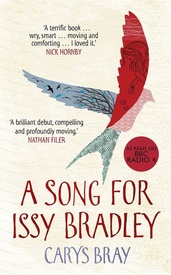 While four-year-old Issy Bradley is languishing in bed with undiagnosed meningitis, her mother, Claire, is shopping in Asda for affordable party food. Issy’s father, Ian, bishop of the local congregation, is out doing good works for the community and her big sister, Zippy, is lost in Jane Austen’s Persuasion. Of her two brothers, seven-year-old Jacob, is swallowing his disappointment that his dad won’t be able to attend his birthday party and teenager Alma is looking for an escape route so he can go off and play football. When Issy dies, the family’s religious faith proves to be both a source of consolation and pain. The future focus, with the belief that the family will be reunited in eternity, is reassuring for Ian, as he keeps up his church duties, unaware of how much he is neglecting his family and exhausting himself. Claire, who, unlike the other Bradleys, did not grow up as a Mormon but converted when she met Ian, has always found comfort in the sense of order and obedience to a higher power, now feels deserted by God: This Is the Water and The Cold Cold Sea ... with a quirky style and some reflections on structure31/7/2014 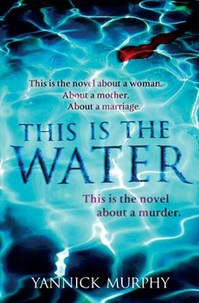 I didn’t expect to be dipping my toe in the water again so soon after Waiting for the Rain, but the coincidence of two new novels swimming to the top of the TBR pile has compelled me to add them to Annecdotal’s growing stream of water-themed fiction. Published today and tomorrow, both novels evoke the dangers that lurk in the water through the pain of losing a child and the question of how far a parent will go to safeguard their family. This is the water. This is the text: letters forming words, words forming sentences, sentences making paragraphs to convey the story of the pool and the girls and boys who swim in it and the parents who ferry their children there. This is Chapter One where you enter the minds of swim moms ultracompetitive Dinah and beautiful but weary Chris. This is Annie who will lead you through the chlorinated water where the killer also swims. This is Annie, confused by her brother’s suicide and her husband’s emotional distance, corsetting her girls into their skin-tight racing suits and deliberating over overpriced energy drinks. This is Chapter Fifteen. This is you still ambivalent about the “unique narrative style”, wondering if it’s slowing the pace unduly, wondering why this novel is described as a thriller. This is Annie’s husband, Thomas, reading a newspaper report about a girl with her throat slit letting you see at last how well this novel fits the genre. These are the next 200 pages of moral dilemmas around marital infidelity and withholding evidence to protect one’s own skin. This is the climax where Annie’s everyday cares and concerns are meaningless as she fights for her own life and that of her daughters. This is me wondering how many other bloggers have adopted the author’s style in their reviews. This is Yannick Murphy’s fifth novel. This is the water. Will you plunge in? 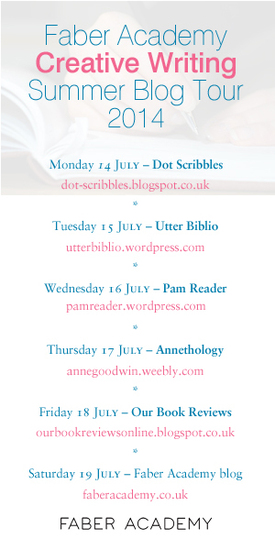 Early last week, I was contacted by Emily Furniss, who was the publicist for Roopa Farooki's novel, The Good Children, which sparked a lively discussion here on Annecdotal about obedience. Emily invited me to host a post on writing tips as part of a blog tour she was arranging. Of course I was game; I'd enjoyed hosting Janet Watson writing about her memoir and Tom Vowler's Laws for a Literary Life. The blog tour is an excellent way of discovering new blogs and, because I've got some nominations languishing in the virtual cupboard waiting to be appropriately dispensed, I'm awarding each of the four non-commercial blogs partaking in this tour the honourable title of Versatile Blogger. (Only 6 more nominations to go, then.) Do pop over to their blogs to see whether you agree with me about their versatility. Regarding my role in the current tour, by sheer coincidence, I already knew the writer I'd be hosting: Shelley Weiner helped me excise two superfluous point of view characters from my novel, Sugar and Snails – a painful but necessary amputation. So, without further ado, it's over to Shelley and her tips on writing a powerful short story. (Incidentally, I have no connection with the Faber Academy.) 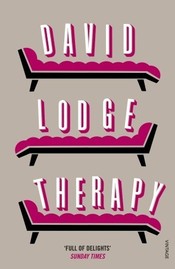 Oh, Professor Lodge, if only you’d named this novel A Narcissist’s Diary or perhaps Tubby’s Dodgy Knee. But Therapy! The title’s crying out for a place in this series, and you know what that means. Yes, I had to read the thing, and think about it, and I so hate doing negative reviews (and I am doing so only in the knowledge that you are big enough to take it/be totally unaware that I live and breathe on this earth). Yes, I could’ve bailed out when I realised your title encompasses a broad church of therapy: physiotherapy; aromatherapy; acupuncture and a rambling form of cognitive-behaviour therapy for which the dreadful manualised Improving Access to Psychological Therapies might have been especially invented – but I’d already paid for the book. I hardly cared that your narrator’s bungled attempt to clarify the difference between a psychiatrist and a cognitive-behaviour therapist (p15) had me longing to introduce you to Sally Vickers, whose novel, The Other Side of You, featured my last therapist but one. In fact it was almost a relief to be jolted out of my stupor by the subsequent revelation (p212) that said cognitive-behavioural therapist was licensed to prescribe antidepressant medication, outing her as a psychiatrist (or some other kind of medical doctor) after all. Yet I’d have gladly renounced my pedantry in exchange for a spark of connection with character or story to lift me above the morass of ennui.  One of the literary agents who declined my request for representation did so on the basis that she didn’t like the first-person present-tense narration with which my novel opens. While I respected her capacity for clarity about her personal preferences, it did make me wonder about the plethora of good literature she was denying herself, not so much from wannabe novelists like me, but heavyweights like Nick Hornby and Margaret Atwood. I was reminded of this when I came across the concept of the “stolen head” novel in a review by Toby Litt in last Saturday’s Guardian, defined as a novel voiced on behalf of a person (for example, Holden Caulfield of The Catcher in the Rye) who the reader knows wouldn’t have the patience or self-discipline to write the structured, perfectly punctuated prose with which they are credited. The real writer has stolen the life experiences, the sensual perceptions, the vocabulary, of someone beneath or beyond the day-to-day deskishness of writing. Stolen head books are great for giving us very young, very angry or very damaged-first person narrators. 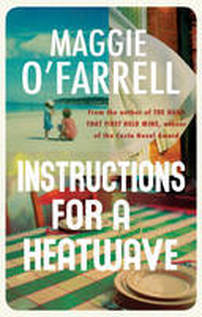 I read for pleasure, for the blog and for lessons in how to write. It’s particularly satisfying when a novel ticks all three boxes, as has happened recently with Maggie O’Farrell’s Instructions for a Heatwave. This is the unputdownable story of what happens to the family of Robert Riordan when he sets out to buy the morning paper and doesn’t come back. It’s the work of an accomplished novelist at the top of her game yet I hope that by peeling back the skin and examining its viscera, I can drag myself a step closer to creating something comparable of my own. The setting Geographically, the novel takes us from North London to New York and Gloucestershire to its climax on a small island in Connemara. While the streets, houses and workplaces are beautifully sketched, it’s the heat and attitudes of the English 1976 summer of drought that defines the setting right from the opening paragraph: The heat, the heat. It wakes Gretta just after dawn, propelling her from the bed and down the stairs. It inhabits the house like a guest who was outstayed his welcome: it lies along corridors, it circles around curtains, it lolls heavily on sofas and chairs. The air in the kitchen is like a solid entity filling the space, pushing Gretta down into the floor, against the side of the table. (p3) Despite Elmore Leonard’s diktat to never open a book with the weather, this setting works by exposing the characters to a situation beyond the everyday: the melting tar, the bands of sweat along the hairline, the unnaturally clear blue skies, the fissures opening up in the lawn provide a back-drop of unease, mirroring the boiling emotions and frayed tempers within the family. The voice Related in the third person from the points of view of Robert’s wife and all three adult children, the voice is elegant without being flashy. It’s not only the heat that feels physically present. Here’s the eldest son, Michael Francis, escaping momentarily from the family home:  Carrot Ranch Communications is one of the great new blogs I discovered on the podium of Norah Colvin’s Liebster nominees. Here, along with buckaroo-tinged insights into the writing process, Charli Mills poses a weekly flash fiction challenge. Now, I thought I’d cracked the art of the short short, but my shortest story to date is four times the length of the 99 words set by Charli, practically a saga in comparison. Each week I checked the writing prompt and each week I let it go by, while admiring the efforts of others who managed to shoehorn a proper narrative into under 100 words. Maybe it was things winding down for Easter, maybe it was the theme of the challenge, but this week I decided to plunge in. But boy, was it hard! Much as I relish pruning back redundant words, this was like growing bonsai. But I persevered in the knowledge that limits can be liberating for writers, and Charli’s introduction had already drawn me in. She writes about how a glimpse of the world can spark a memory, and that memory can lead us towards a choice of creative paths. One leads to memoir, another to fiction: why someone might follow one route rather than the other to tell their story is something I’ve been pondering lately, as I’m looking forward to hosting a post from a memoirist here later this month. Charli’s 99-word challenge is to “write a biography for a character, alter-ego or you”. Well, I struggle enough with the bios editors request to accompany my short story publications, so you can guess which way I was going to go. And I thought it would be useful to tighten up my thinking about a character I’m musing on. So it’s over to Bernie, in her ninety-nine words: Winning the TV quiz show, Family Challenge, assured me a rosy future. My encyclopaedic knowledge would fuel my teaching career. I hadn’t bargained for a pregnancy midway through the training. When I surrendered my baby for adoption, I lost my sense of purpose too. Can’t complain, though. I work in a school, albeit in admin. I’m extremely popular on quiz nights down the pub. But, if people ask if I have children, I don’t know what to say. Everything’s changing again, as Jason has made contact. Given he’s about to become a father, can I call myself Grandma now? After reading some of the beautifully poetic contributions already up on the site, I think I might have fallen into the trap of prioritising information over style. Clearly, more practice is in order, but at least I’m getting to know Bernie a little better. |
entertaining fiction about identity, mental health and social justice
Annecdotal is where real life brushes up against the fictional.
Annecdotist is the blogging persona of Anne Goodwin:
reader, writer, slug-slayer, tramper of moors, recovering psychologist, struggling soprano, author of three fiction books. LATEST POSTS HERE
I don't post to a schedule, but average around ten reviews a month (see here for an alphabetical list), some linked to a weekly flash fiction, plus posts on my WIPs and published books. Your comments are welcome any time any where. Get new posts direct to your inbox ...
or click here …
Popular posts
Categories/Tags
All
Archives
March 2024
BLOGGING COMMUNITIES
|
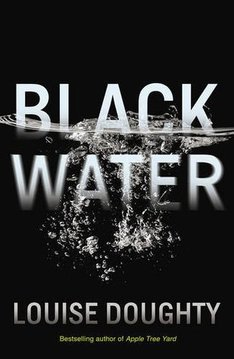
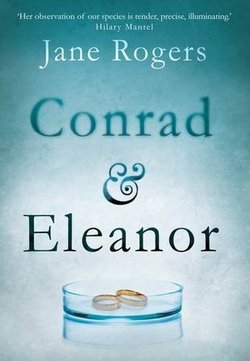
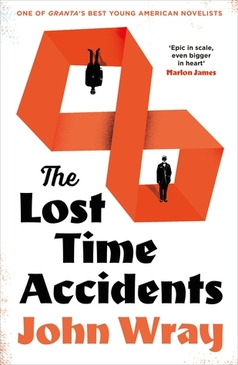
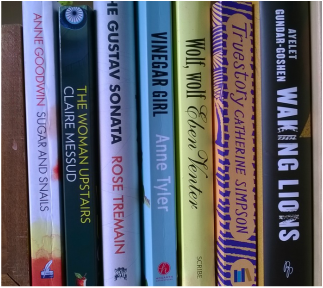
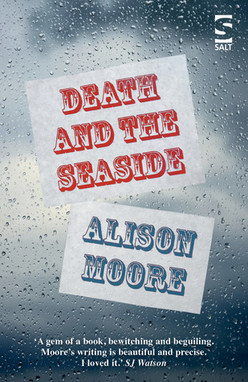
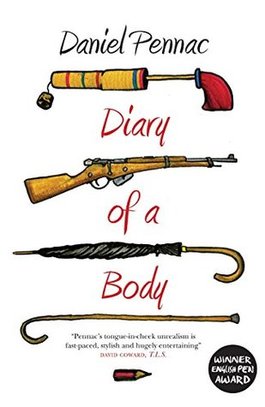

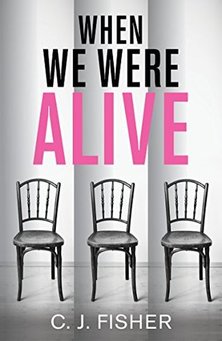
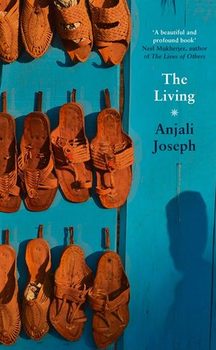

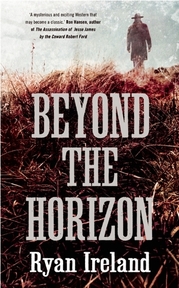
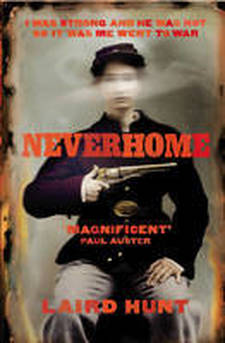





















 RSS Feed
RSS Feed





















